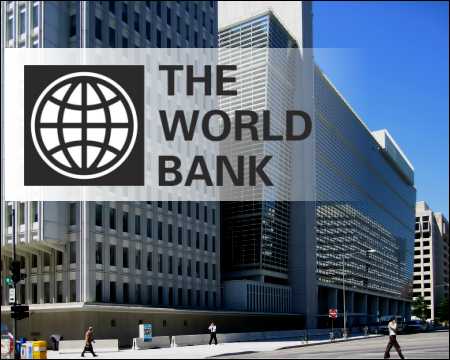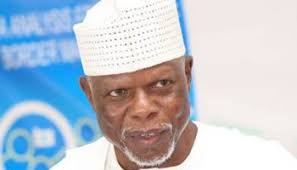The World Bank Group has charged the Nigerian government on the need to adopt policy measures needed to grow the nation’s economy faster to reduce poverty, noting that despite favourable global oil prices, the “business as usual” attitude in managing the economy is not delivering desired outcomes.
The Bank, which gave this charge in its latest publication titled ‘Nigeria Development Update (NDU): “Nigeria’s Choice’, cautioned that even if a crisis is avoided in Nigeria in the near-term, long-standing policy and institutional challenges are persisting and severely constraining the economy.
It maintains that this hinders the prospects of the vast majority of the country’s people, at least 80 million of whom live in extreme poverty.
The Washington D.C-based development finance institution report reflects that whether to continue down this path, or to instead chart a new course and rise to its tremendous potential, is Nigeria’s choice – the theme of the latest World Bank’s report.
The report also indicated that Nigeria’s economic growth had slowed on the back of declining oil output and moderating non-oil activity.
The Breton Woods institution noted that the nation’s real gross domestic product (GDP) rose by 3.1 percent year-on-year (y-o-y) in the first three quarters of 2022, little more than the annual population growth of 2.6 percent even as Nigeria’s growth performance, and its fiscal and external buffers, have decoupled from high oil prices, and macroeconomic vulnerabilities have increased.
It stated: “It is urgent to address the key drivers of this decoupling and make reforms to strengthen Nigeria’s macro-fiscal framework. The Strategic Revenue Growth Initiative (SRGI) of the federal government is a welcome first step, reversing the previously declining trend in non-oil revenues as a share of GDP. This initial success needs to be sustained and built upon.”
On the options for the country to achieve the desired goals, the report presented the reform choices Nigeria can make in three key areas, namely restoring macroeconomic stability through measures to reduce the domestic and external imbalances, boosting private sector development and competitiveness by eliminating structural constraints that hinder productivity; and expanding social protection to protect the poor and most vulnerable.
Speaking on the report’s findings, World Bank Country Director for Nigeria, Shubham Chaudhuri, said: “Nigeria has a choice to implement critical macroeconomic and structural reforms that can reduce crisis vulnerabilities and increase growth. Doing so will lift per-capita incomes, sustainably reduce poverty and deliver better life outcomes for many Nigerians.
“Urgent business-unusual choices are needed to avoid a scenario in which up to 80 million working-age Nigerians do not have a full-time job by 2030 and up to 23 million more Nigerians could be living in extreme poverty”, Chaudhuri added.
While citing recent micro and macroeconomic indices in the country to justify its stance on the need for Nigerian leaders to fast-track the nation’s development, the World Bank maintained that “the weaknesses in the macroeconomic policy framework are suppressing growth and making Nigeria more vulnerable to shocks.”
Also commenting on the findings of the report, the World Bank Lead Economist for Nigeria and co-author of the Report, Alex Sienaert, said: “Previous episodes of reform progress and high growth, such as in the 2000s, show that Nigeria’s economy can turn around quickly, and its tremendous economic potential that could be unleashed is well-known.
“If Nigeria chooses to make reforms that stabilize its macro-fiscal policy settings and support investment, this would be transformative for 80 million poor Nigerians, for Nigeria as a whole, and for Africa”, he added
The 2022 edition of the NDU draws on the analysis of a new World Bank Nigeria Report – the Nigeria Country Economic Memorandum (CEM). The CEM offers key insights into Nigeria’s growth record since 2000 and highlights key policy reforms to chart a new and inclusive growth path that boosts growth and accelerates job creation.




